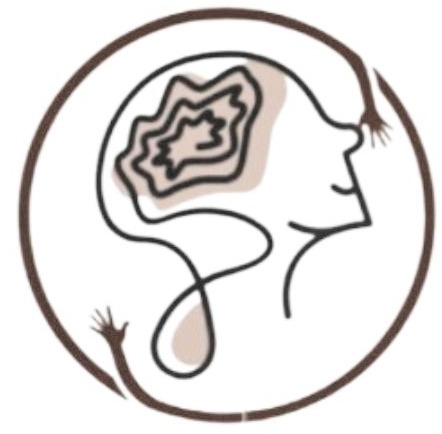
The Essence of Psychology and Psychotherapy: A Deep Dive into Human Connection and Understanding
Psychology and psychotherapy, at their core, are about understanding the intricacies of the human mind, emotions, and behaviors. The essence of these fields lies in the deep, often transformative relationships between therapist and client, where healing and growth occur through exploration, insight, and connection. From the pioneering ideas of Sigmund Freud to the evolving theories of relational psychoanalysis, the heart of psychology has always been about more than just symptom relief—it’s about fostering genuine human understanding.
Freud and the Birth of Psychoanalysis
Sigmund Freud, often regarded as the father of psychoanalysis, revolutionized the way we think about the mind and therapy. His concept of the unconscious mind—where repressed thoughts, memories, and desires reside—opened up new avenues for understanding human behavior. Freud’s idea of transference, where clients project feelings about significant figures in their lives onto the therapist, highlighted the importance of the therapeutic relationship. This relationship, Freud argued, was the vessel through which unconscious conflicts could be brought to the surface, understood, and resolved.
Freud’s focus on the therapeutic relationship laid the groundwork for future developments in psychology. He recognized that therapy was not just about intellectual understanding but about emotional experiences and the dynamic interplay between therapist and client. This relational aspect is a cornerstone of modern psychotherapy.
The Evolution of Relational Psychoanalysis
Building on Freud’s foundational work, relational psychoanalysis emerged as a significant force in contemporary therapy. This approach, championed by thinkers like Stephen Mitchell and Jessica Benjamin, shifted the focus from the isolated mind of the individual to the interactions and relationships that shape a person’s psyche. Relational psychoanalysis posits that our sense of self is formed and continually reshaped through our relationships with others.
In relational psychoanalysis, the therapist-client relationship is seen as a microcosm of the client’s broader relational patterns. The therapeutic relationship itself becomes a space where new, healthier patterns can be explored and enacted. Unlike traditional psychoanalysis, which might focus on the therapist as a neutral observer, relational psychoanalysis views the therapist as an active participant in the therapeutic process. The mutual influence between therapist and client is acknowledged and utilized as a tool for change.
This perspective emphasizes that healing occurs not just through insight into past experiences but through the experience of a different kind of relationship within therapy—one that is authentic, validating, and empowering. The therapist’s genuine engagement, empathy, and responsiveness are crucial in creating a space where the client can explore their vulnerabilities, fears, and desires.
The Broader Field of Psychotherapy: Diverse Approaches, Unified Goals
Beyond psychoanalysis, various other schools of thought have contributed to the understanding of the therapeutic process. Humanistic psychologists like Carl Rogers emphasized the importance of unconditional positive regard, empathy, and genuineness in therapy. Rogers believed that for clients to grow and heal, they needed to feel deeply understood and accepted by their therapist. His person-centered approach underscored the idea that the therapeutic relationship itself is a powerful agent of change.
Cognitive-behavioral therapy (CBT), while often seen as more structured and goal-oriented, also recognizes the importance of the therapeutic alliance. Studies have shown that the quality of the relationship between therapist and client significantly influences outcomes, even in more directive therapies like CBT. The trust and collaboration between client and therapist create a foundation for effective intervention, regardless of the specific techniques used.
The Essence of Therapy: Connection, Understanding, and Growth
At its essence, psychology and psychotherapy are about connection—connecting with oneself, with others, and with deeper truths about the human experience. The therapeutic relationship is a space where clients can explore who they are, how they relate to others, and how they can grow and change. This relationship is not just a means to an end; it is an end in itself, a vital part of the healing process.
In a world that often prioritizes quick fixes and measurable outcomes, it’s crucial to remember the deeper purpose of therapy. The true essence of psychology is not in symptom reduction alone but in fostering a journey of self-discovery, growth, and transformation. It’s about helping people understand themselves more deeply, connect more authentically with others, and live more meaningful lives.
Relational Psychoanalysis: A New Paradigm for Understanding
Relational psychoanalysis offers a unique lens through which to view the therapeutic process. It challenges the notion of the therapist as a detached expert and instead positions them as a co-participant in the therapeutic journey. This approach recognizes that both therapist and client bring their histories, biases, and relational patterns into the therapy room, and that these dynamics play a crucial role in the process of change.
The relational approach also highlights the importance of power dynamics in therapy. It acknowledges that the therapist, by virtue of their role, holds power in the relationship, but it also emphasizes the need for the therapist to be aware of this power and to use it responsibly. By fostering a collaborative, egalitarian relationship, the therapist can create a space where the client feels empowered to explore and transform their relational patterns.
Conclusion: Reclaiming the Essence of Psychology
In today’s fast-paced, outcome-driven world, it’s easy to lose sight of the true essence of psychology and psychotherapy. But the work of Freud, Rogers, and the pioneers of relational psychoanalysis reminds us that the heart of therapy lies in the relationship between therapist and client. It’s in this relationship that healing, growth, and transformation occur.
As we move forward in the field of psychology, it’s essential to hold onto these core values. Therapy should not be reduced to a set of techniques or quick fixes; it should be a space where genuine human connection and understanding take place. By prioritizing the therapeutic relationship, we honor the true essence of psychology—a field dedicated to helping people live fuller, more meaningful lives.
Learn More
The State of Mainstream Psychology and Mental Health in India: A Patch on Capitalism
Psychology has long been recognized as a vital field focused on understanding the human mind and behavior, fostering well-being, and addressing mental health disorders. However, recently, it feels as though the psychology and mental health in India are being co-opted by capitalism, particularly in corporate settings. This shift has compromised the essence of psychology, reducing it to a tool that serves economic interests rather than prioritizing genuine mental health care.
The Essence of Psychology
At its core, psychology is dedicated to exploring the complexities of the human psyche, considering factors that influence thoughts, emotions, and behaviors. The therapeutic relationship between a psychologist and a client is the most important factor in effective mental health care. It requires patience, empathy, and a deep commitment to long-term healing. Most psychological approaches emphasize the importance of this relationship, focusing on understanding the client’s experiences and fostering a journey of self-realization and growth. However, the modern-day crisis in mental health care has made us forget this fundamental idea of the therapeutic relationship.
The Corporate Influence on Mental Health
The corporate sector, driven by profit and efficiency, often demands quick fixes and measurable outcomes. This creates a clash with the fundamental principles of psychology, which advocate for a thorough and patient approach to mental health treatment. For instance, my recent job interviews in corporate mental health settings highlighted this disconnect.
During one interview at a well-known hospital, I was made to wait for two and a half hours before being called in. When the interview finally began, the psychiatrist seemed disinterested, impatient, and hurried. He didn’t even seem to differentiate between relational psychoanalysis and classical psychodynamics, dismissing a field he clearly didn’t understand. This interaction reflected a larger issue in corporate mental health settings: the prioritization of efficiency and profit over meaningful, patient-centered care.
The Agitation of the Corporate Therapist
The psychiatrist’s frustration during the interview, especially after a long day, underscores a broader issue in corporate mental health environments. Therapists working in these settings are often overworked and under pressure to deliver immediate results. This pressure can lead to a superficial approach to therapy, focusing on short-term symptom relief rather than addressing underlying mental health struggles. These shortcuts undermine the therapeutic process and cater to the capitalist demand for quick fixes in therapy, rather than true emotional healing.
The Loss of True Therapeutic Value
In a capitalist framework, the deep, relational aspects of therapy are often overshadowed by the need for productivity and cost-effectiveness. People seeking help for their emotional distress are often caught in a system that is just as stressful as the one they are trying to escape. Therapists, too, become cogs in the capitalist machine, unable to practice the patient, empathetic care that is essential for true mental health care. As a result, the essence of therapy — fostering emotional well-being and long-term healing — is lost in favor of short-term productivity.
The Call for Change
It’s crucial to recognize and resist the growing capitalist influence on psychology. The field must reclaim its roots, emphasizing the importance of the therapeutic relationship and the slow, patient work of understanding and healing. Mental health care should not be reduced to a series of quick fixes but should focus on fostering genuine, long-term well-being. The therapeutic process should be seen as a journey of self-realization, where therapists work to understand their clients’ unique experiences, helping them grow emotionally and mentally.
As we face the challenges of modern life, it is essential to protect the essence of psychology, resisting the pressures of capitalism that threaten its ability to provide meaningful, effective care. Mental health care should always prioritize healing, understanding, and emotional growth over mere productivity. Only then can we ensure that psychology remains a source of hope, healing, and support in an increasingly stressful world.
(Keywords: Mental health care, Anxiety disorders, Depression treatment, Corporate mental health, Relational psychoanalysis, Classical psychodynamics, Mental health struggles, Emotional well-being, Chronic stress, Therapeutic relationship, Capitalism in mental health, Quick fixes in therapy, Long-term healing, Psychosocial approaches, Mental health disorders, Mental Health In India, Mental health advocacy, Self-realization, Emotional distress.)
Learn More